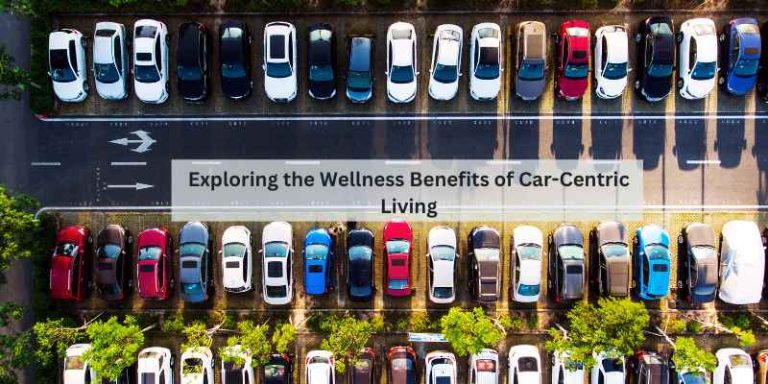Car-Sharing And Urban Living: A Smart Lifestyle Shift
Car-sharing has become integral to modern urban lifestyles, offering convenience and sustainability. Its role in shaping urban living is undeniable.
As cities become more congested and environmentally conscious, car-sharing services provide a practical solution for reducing traffic and emissions. By promoting shared vehicle usage, car-sharing contributes to a more efficient use of resources and encourages a shift away from personal car ownership.
The convenience of accessing vehicles as needed, coupled with cost-effectiveness, makes car-sharing an attractive option for urban dwellers. This trend is reshaping the way people commute and is expected to continue influencing urban lifestyles in the future.
The Rise Of Car-sharing In Urban Landscapes
The rise of car-sharing is revolutionizing urban lifestyles, promoting sustainability and reducing congestion. This innovative transportation solution is reshaping modern cities by offering convenient, cost-effective mobility options for residents. With the growing emphasis on environmental consciousness, car-sharing plays a crucial role in creating more efficient and eco-friendly urban landscapes.
Factors Driving Popularity
Car-sharing is becoming popular due to affordability and convenience.
Comparing Traditional Ownership With Car-sharing
Ownership vs. Car-sharing: cost-effective and environmentally friendly.
The Rise of Car-Sharing in Urban Landscapes
Car-sharing is revolutionizing urban transportation options.
Factors Driving Popularity
– Affordability and convenience are key drivers.
– Flexibility in usage and payment options.
– Environmental benefits such as reduced carbon footprint.
– Integration with public transportation systems.
Comparing Traditional Ownership With Car-sharing

Economic Benefits Of Car-sharing
Car-sharing has emerged as a popular transportation solution in urban areas, offering a range of economic benefits both for individuals and cities. By allowing people to access vehicles when needed, car-sharing has the potential to revolutionize modern urban lifestyles. Let’s delve into the economic advantages of car-sharing and how it contributes to cost savings for individuals and financial benefits for cities.
Cost Savings For Individuals
Car-sharing presents a cost-effective alternative to traditional car ownership, providing significant savings for individuals. By participating in a car-sharing program, individuals can avoid the upfront costs associated with purchasing a car, such as down payments, loans, and insurance premiums. Additionally, car-sharing eliminates the need for expenses like maintenance, repairs, and parking fees.
Furthermore, car-sharing allows users to pay only for the time they need a vehicle, rather than incurring ongoing costs for owning a car that may remain idle for extended periods. This flexibility enables individuals to allocate their transportation budget more efficiently, potentially saving them a substantial amount of money in the long run.
Financial Advantages For Cities
Car-sharing not only benefits individuals but also has financial advantages for cities. By reducing the number of privately-owned cars on the roads, car-sharing helps alleviate traffic congestion, leading to improved traffic flow and reduced maintenance costs for roads and infrastructure. This can result in substantial savings for cities in terms of road repairs and expansions.
Moreover, car-sharing contributes to a decrease in greenhouse gas emissions, promoting environmental sustainability and reducing the need for costly pollution control measures. The availability of car-sharing services also encourages individuals to opt for public transportation or active modes of travel, such as walking or cycling, which further reduces the strain on city budgets for road maintenance and expansion.
Additionally, cities can generate revenue by partnering with car-sharing companies, charging fees for designated parking spaces or implementing licensing agreements. These partnerships not only generate income but also foster collaboration between the public and private sectors, leading to innovative transportation solutions and enhanced urban mobility.
In conclusion, car-sharing offers substantial economic benefits for both individuals and cities. By providing cost savings for individuals and financial advantages for cities, car-sharing plays a pivotal role in shaping modern urban lifestyles and fostering sustainable and economically viable transportation systems.
Environmental Impact Of Shared Mobility
Car-sharing has emerged as a sustainable solution to the environmental challenges posed by individual car ownership. The practice of shared mobility has significantly impacted urban lifestyles, particularly in terms of reducing carbon footprint and alleviating urban congestion.
Reducing Carbon Footprint
Shared mobility services, such as car-sharing, play a pivotal role in reducing carbon emissions. By promoting the use of fewer vehicles through carpooling and ride-sharing, shared mobility contributes to a decrease in greenhouse gas emissions, thus mitigating the environmental impact of urban transportation.
Alleviating Urban Congestion
Shared mobility not only reduces the number of vehicles on the road but also alleviates urban congestion. By encouraging efficient use of existing vehicles and promoting alternative transportation options, car-sharing services contribute to easing traffic congestion in urban areas.
Social Implications And Community Building
Car-sharing is revolutionizing urban lifestyles by promoting sustainable transportation choices and fostering community connections. This innovative approach not only reduces traffic congestion and carbon emissions but also encourages social interactions among city dwellers, leading to a more cohesive and environmentally conscious society.
Car-sharing has become increasingly popular as a means of transportation in urban areas. This trend has brought about social implications and community building, which are crucial aspects of modern urban lifestyles. In this section, we will explore how car-sharing fosters a sharing economy and enhances public transportation networks.
Fostering A Sharing Economy
Car-sharing is a prime example of a sharing economy, where people pool resources to achieve a common goal. In this case, the goal is to reduce individual car ownership and promote sustainable transportation. Car-sharing platforms provide a way for people to share their cars with others, reducing the number of cars on the road and the associated environmental impact.
Additionally, car-sharing can be a cost-effective option for individuals who do not need a car full-time, but still require access to one occasionally. This fosters a sense of community where people can come together to achieve a common goal of reducing their carbon footprint and promoting sustainability.
Enhancing Public Transportation Networks
Car-sharing can also enhance public transportation networks by providing a first-mile and last-mile solution. In urban areas, people often need to travel short distances to get to a bus or train station, which can be inconvenient and time-consuming.
Car-sharing platforms provide a solution by allowing people to rent a car for a short period of time, providing a more convenient and flexible mode of transportation. Additionally, car-sharing can complement public transportation by providing transportation to areas that are not easily accessible by public transit. This can help bridge the transportation gap and make it easier for people to get around in urban areas.
In conclusion, car-sharing has social implications and community building aspects that are crucial to modern urban lifestyles. By fostering a sharing economy and enhancing public transportation networks, car-sharing can reduce the environmental impact of individual car ownership while promoting sustainable transportation and community building.
Technology’s Role In Car-sharing Services
Technology plays a crucial role in advancing car-sharing services, revolutionizing urban transportation.
Innovative Apps And User Interfaces
Car-sharing companies utilize user-friendly apps for seamless booking and navigation.
The Future Of Autonomous Shared Vehicles
Self-driving shared cars are set to transform urban mobility in the near future.
Urban Planning And Car-sharing
Policy Initiatives And Government Support
Consumer Behavior And Adaptation
Consumer behavior and adaptation play a crucial role in the widespread adoption of car-sharing services. As urban lifestyles continue to evolve, individuals are rethinking traditional car ownership and embracing the concept of shared mobility. Shifting mindsets towards shared resources and demographic trends in car-sharing usage shed light on the changing landscape of urban transportation.
Shifting Mindsets Towards Shared Resources
Urban dwellers are increasingly recognizing the benefits of sharing resources rather than owning them outright. The shift towards a more sustainable and cost-effective approach to transportation has led to the rise of car-sharing as a viable alternative to traditional car ownership.
Demographic Trends In Car-sharing Usage
The adoption of car-sharing services is not limited to a specific demographic. Individuals from diverse age groups and income brackets are embracing this mode of transportation. Young urban professionals, environmentally-conscious consumers, and individuals seeking flexibility in their mobility options are among the key demographics driving the growth of car-sharing.
Challenges And Considerations
Car-sharing has become a popular transportation option in urban areas, offering convenience and flexibility. However, there are challenges and considerations that must be addressed to ensure its continued success. From safety and security concerns to barriers to adoption, it’s important to evaluate these factors to shape the future of car-sharing in modern urban lifestyles.
Addressing Safety And Security Concerns
Ensuring the safety and security of users is paramount in the car-sharing industry. Companies must implement stringent vetting processes for drivers and passengers, as well as robust insurance policies to protect all parties involved. Additionally, the use of advanced technologies such as GPS tracking and real-time monitoring can further enhance safety measures.
Overcoming Barriers To Adoption
One of the key challenges in promoting car-sharing is overcoming the barriers to adoption. This includes addressing concerns related to convenience, cost, and accessibility. Offering seamless booking processes, competitive pricing, and expanding the availability of car-sharing services in urban areas are essential steps in encouraging wider adoption of this transportation model.

Frequently Asked Questions
Is Car Sharing Good For The Environment?
Yes, car sharing is good for the environment as it reduces the number of vehicles on the road, resulting in less traffic congestion, lower emissions, and a decrease in the overall carbon footprint. By sharing a car, individuals can reduce their personal transportation costs and promote sustainable living practices.
What Is The Impact Of Cars On Society?
Cars have had a significant impact on society, providing convenience and mobility. However, they also contribute to pollution and traffic congestion. The automobile industry has created jobs and economic growth, but it has also led to urban sprawl and dependence on fossil fuels.
How Did Society Change Because Of Cars?
Cars have drastically changed society. They revolutionized transportation, making it faster and more convenient. People gained freedom to travel, leading to urbanization and suburbanization. Cars also impacted the economy, creating jobs and boosting industries like oil and manufacturing. However, they also contributed to pollution and traffic congestion.
Overall, cars have transformed how we live and move around.
Why Do People Use Car Sharing?
People use car sharing for cost savings, convenience, environmental benefits, and flexibility in transportation choices.
Conclusion
Car-sharing has become an important aspect of modern urban lifestyles. It has provided people with a more affordable and sustainable way of transportation, reducing traffic congestion, and minimizing the carbon footprint. Car-sharing has also encouraged a sense of community and social responsibility, making it an ideal solution for individuals who want to embrace a more environmentally conscious lifestyle.
As technology advances and urban populations continue to grow, car-sharing will undoubtedly play an even greater role in shaping the future of transportation.







